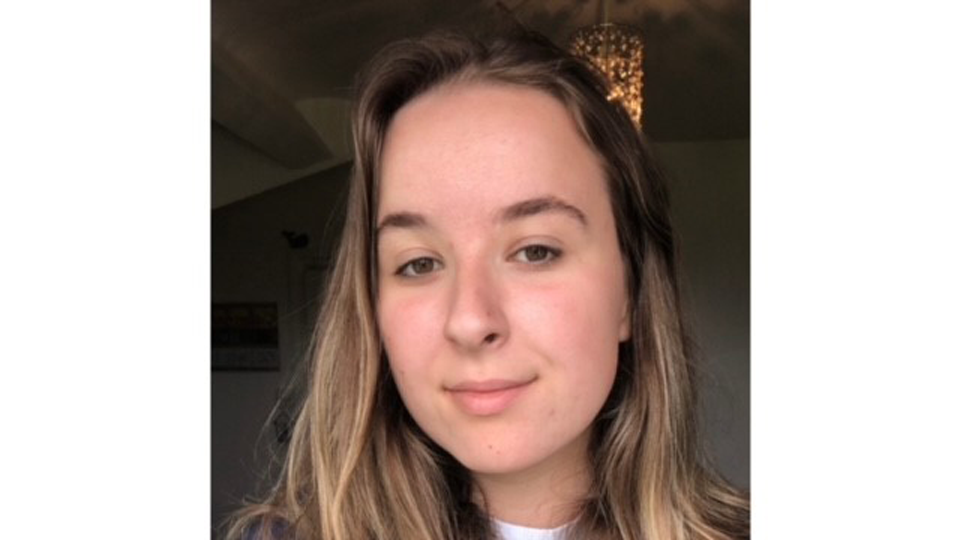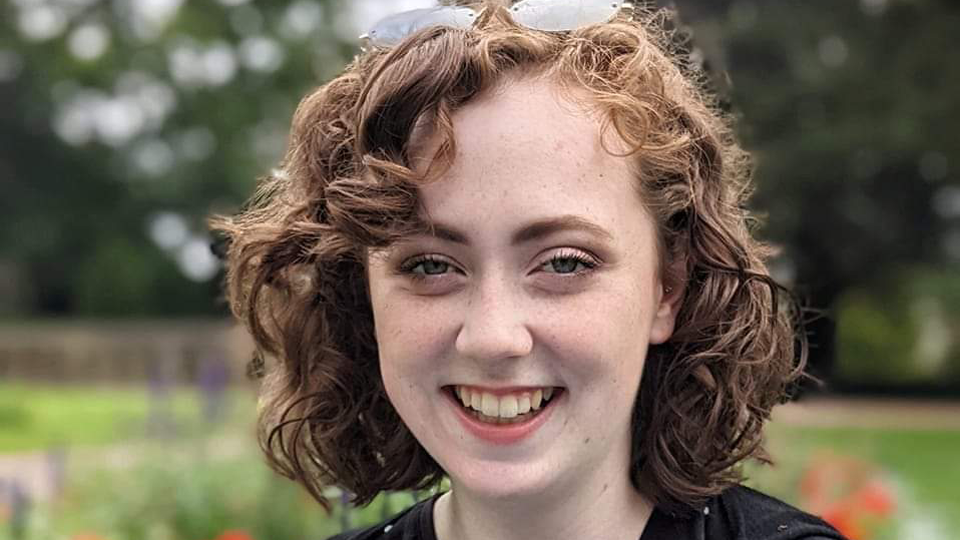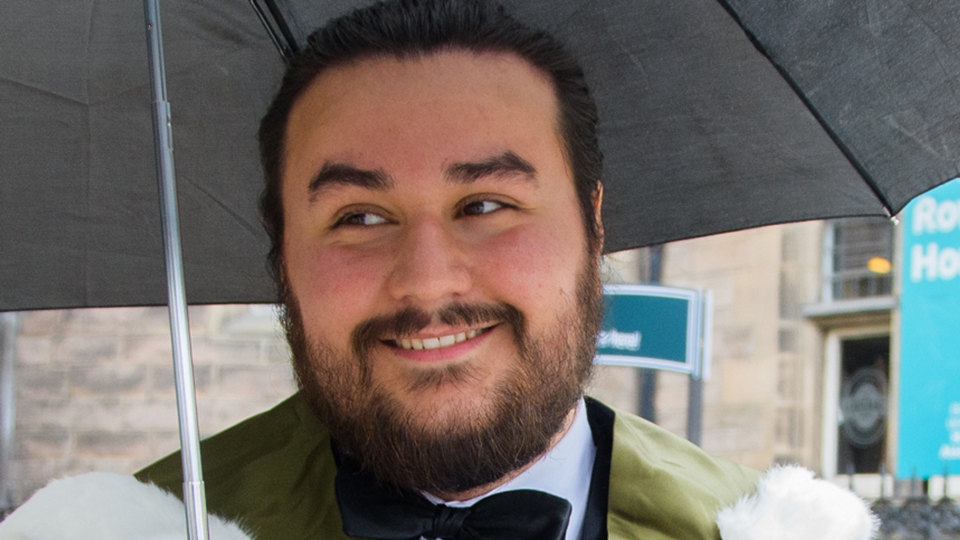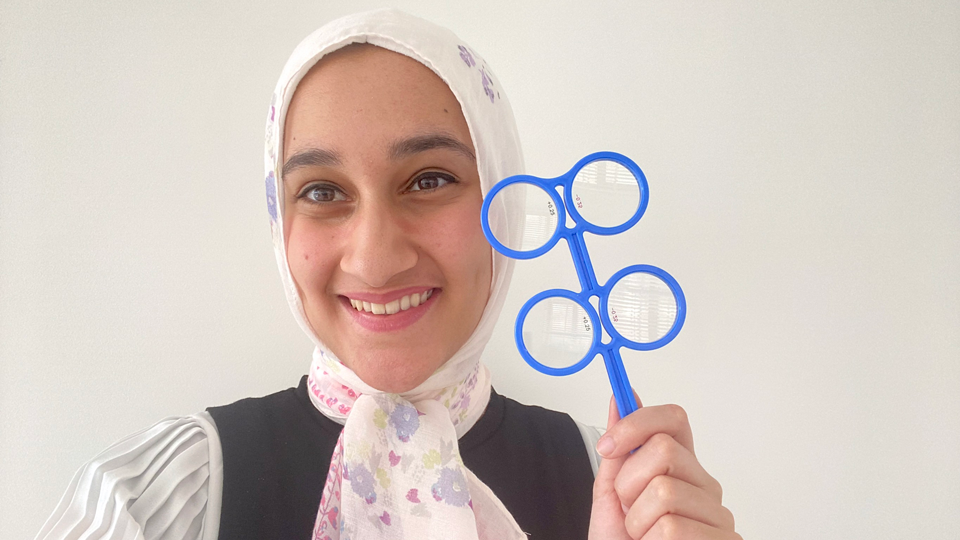- OT
- Life in practice
- Career development
- Student optometrists’ reflections on work experience
COVID-Generation
Student optometrists’ reflections on work experience
OT heard from a number of students about the work experiences they have secured despite the pressures of the pandemic, as well as their views on the future

17 May 2022
“COVID-19 has shown the value of optometrists as front-line clinicians”
Martha Glain, optometry student at Cardiff University

My work experience: I was fortunate to secure work as a pre-screener over the summer of 2021 at Barnett Pepper Opticians, an independent practice near my home in Caernarfon, North Wales. This was an incredibly valuable experience as I was able to develop my knowledge and skills of working in a busy practice. I felt that this gave me confidence and a head-start as I began my third year at Cardiff, when we started to test members of the public for the first time. I am very grateful to the staff and management at Barnett Pepper for this experience and the warm welcome I received.
Since then, I have secured a great placement for my pre-registration year at Pontypridd Specsavers. They have been incredibly welcoming and generous enough to offer me a Saturday job, enabling me to become familiar with the practice and staff before starting my pre-reg position in August.
The future for optometry: I think the future is going to be centred around proactive primary care, managing more within the community and only referring things beyond the scope of the optometrist, which in itself is ever-expanding. Some of the Welsh postgraduate qualifications may even become integrated into the undergraduate degree.
COVID-19 has shown the value of optometrists as front-line clinicians, especially in Wales, where the hospital eye service is utilising shared care schemes more than ever before. This could lead to some exciting developments within the profession, and more opportunities for us to be involved in more complex roles while also furthering our contribution to the services of the NHS.
“I saw a whole new side to optometry”
Amy Cooper, optometry student at Cardiff University

The future for optometry: I think COVID-19 has made us all more aware of hygiene and infection control measures, some of which I imagine will stay past the pandemic, such as breath shields on slit lamps. I think patient expectations will have changed, and they may continue to be hesitant about practitioners getting really close to them, such as when doing direct ophthalmoscopy.
I would also expect to see patients with more severe pathologies attending Eye Health Examination Wales appointments in the community, as people have been discouraged from attending A&E, and many GP surgeries still aren’t routinely offering in-person appointments.
Getting creative
There are unique opportunities to gain hands-on experience, or broaden understanding of an area of the profession. With the added challenges of the pandemic, taking a sideways approach to securing experience could help where opportunities might prove difficult to find.
Careers consultant, Estanis Bouza, from the City, University of London’s careers department, told OT: “Some students have been able to take a creative approach” when it comes to securing work experience.
When directly-relevant experience in optical practices was more difficult to find, “a combination of retail experience and volunteering in a COVID-19 vaccination centre has worked well,” he said.
“Other students have realised the importance of keeping themselves active and getting better at communicating the value of whatever they have done,” he continued.
Dr Leanne Smewing, clinical lead optometrist for the School of Health professions at the University of Plymouth, noted that COVID-19, as well as the policies and procedures required during the pandemic, “have continued to be a barrier to work experience.”
However, the department has found that many employers, particularly in the region, are open to hearing from students applying for paid job roles.
“We have recommended or encouraged students to apply for a roles as a receptionist or optical assistant rather than work experience, as practices can then follow usual staff protocols and procedures, and this has worked well for a few of our students,” Smewing said.
If it’s not possible to secure a job in optics, Smewing suggested building a relationship with a local practice, “particularly if it is somewhere they would like to work in the future.”
“Attend for an eye examination and – if that practice has a pre-reg – offer to sit as a volunteer patient for rigid gas permeable contact lens fitting or Goldmann applanation tonometer practice that the pre-reg might need,” she added.
“I worked alongside my mum and sister to keep the practice open”
Anil Kirit Rach, student representative for Optometry Scotland and fourth year optometry student

My work experience: My mum has her own optometry practice, so I’ve been lucky to be able to work there while studying. In the early days of the pandemic, I worked alongside my mum and sister to keep the practice open while the practice staff were furloughed. I was really grateful to have that opportunity, especially at a time when many students were unable to work.
The future for optometry: Many eye care services have shifted into community optometry, such as the glaucoma shared care scheme, in order for practices to help ophthalmology departments clear backlogs. I’d like to see the optometry courses in Scotland incorporate this into the curriculum, so students have a better understanding of what might be expected of them across different health board areas.
“The experience has aided me in identifying aspects of optometry that I am most interested in”
Huda Hathaf, AOP student representative and third-year student at Cardiff University

My work experience: I was lucky to have secured a domiciliary placement in Specsavers Gwent. After registering my interest, I had to write a short statement detailing the skills I would offer. It was so rewarding to see the patients and how much of a difference home visits can make on an individual.
Observing the portable equipment, such as the iCare tonometer, which I had not seen before, was insightful, and I found discovering how different pathologies can be diagnosed in a home environment enlightening. It was great spending time with the team, learning about their career journey, and what led them into domiciliary.
Undertaking this placement has made me want to consider domiciliary work in the future. I’m now aware of how referral considerations may differ from practices, and the reward that comes with improving the lives of patients who are unable to leave home. It highlights the many opportunities in optometry, and should be an experience available to all students.
After handing my CV to multiple practices, I also undertook a placement at Swansea and Llanelli Specsavers. For the first time, I was able to shadow WECS appointments, carry out pre-screening, practice Volk, and participate in handovers. I saw first-hand the importance of good record keeping and how it benefits patients and optometrists.
The summer placements helped me prepare for my final year of university. The experience has aided me in identifying aspects of optometry that I am most interested in, and made me certain that this is the career I want to pursue.
Volunteering: Huda’s insight
Volunteering has been an eye-opening experience, allowing me to meet people from different backgrounds and with different expertise.
Assisting in Maggie’s Club, a collaboration between UCAN Productions and Cardiff School of Optometry, which helps blind and partially-sighted children, has further developed my passion for optometry and given me a new perspective on the type of optometrist I would like to become. People with disabilities are at greater risk of developing eye conditions compared to the rest of the population, and more support is needed to enable them to receive the eye care they deserve.
Taking part as a telephone group facilitator for the Royal National Institute of Blind People, alongside my twin sister, Alia, reinforced skills such as good communication, effective listening, and being able to work as a team. As a volunteer I am aware of the difficulties faced by many people with sight loss. In the UK, one person every six minutes is told they are going blind, so it is important to break barriers for those who are visually impaired and create an atmosphere of support. This is one of the main reasons that I wanted to pursue optometry as a profession – because it allows you to make a difference in the quality of life of your patients.
I encourage everyone to find an activity or volunteer role, as not only will the skills gained help in your career, you’ll also understand your full potential and have fun at the same time.
“I really enjoyed interacting with the demographic of domiciliary patients”
Indy Ghuman, final year optometry student at Aston University and chair of the AOP student council

My work experience: I was really fortunate to have a domiciliary and in-practice placement with Specsavers last summer, alongside working in practice.
When it came to COVID-19, I almost discounted that work experience would be able to happen. I was grateful that I had an optical job that was providing me with experience.
Specsavers held a pre-reg webinar in spring last year, introducing us to some of the resources they offer and mentioned they would be offering a few summer placements so to keep an eye on our emails.
The domiciliary application involved in-depth questions to ascertain why you wanted to do the placement, what you thought you would learn and what skills you might have. This was a bit challenging, because I didn’t really know much about domiciliary.
I went to Southampton and the Isle of Wight and learnt so much from my placement. I really enjoyed interacting with the demographic of patients and it helped me develop those communication skills for a different patient base.
Specsavers made it very accessible to students by paying for the placement, and also paid for my accommodation. That really helps as a student.
My journey: Indy’s perspective
Looking back on his experience, he shared: “I feel like it's been a steep learning curve. That could be said about any experience of a university programme, but I think especially these three years – a lot happened.”
“I'm actually thankful for the experience because I think being adaptable and able to rise to any challenge or adversity, by working with your peers, has brought the students closer together because they have had this common bonding experience,” he shared.
“I'm a bit apprehensive going forward, but I feel like things have come together in my final year,” he told OT. “I'm very thankful to my lecturers for making things as normal and the best they could do, so much so that now as I see patients in my final year, I still feel competent.”


Comments (0)
You must be logged in to join the discussion. Log in